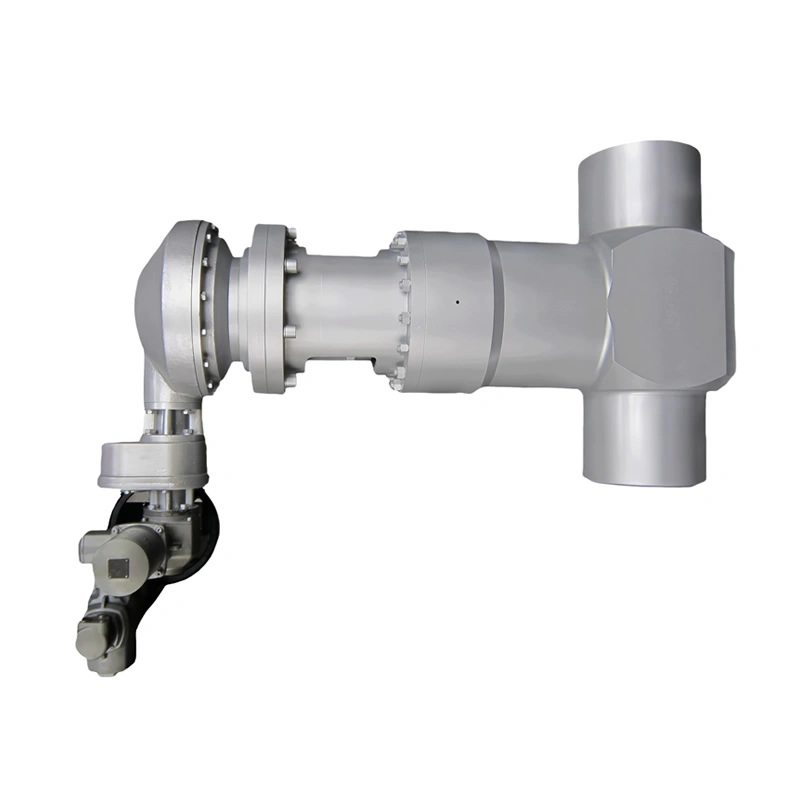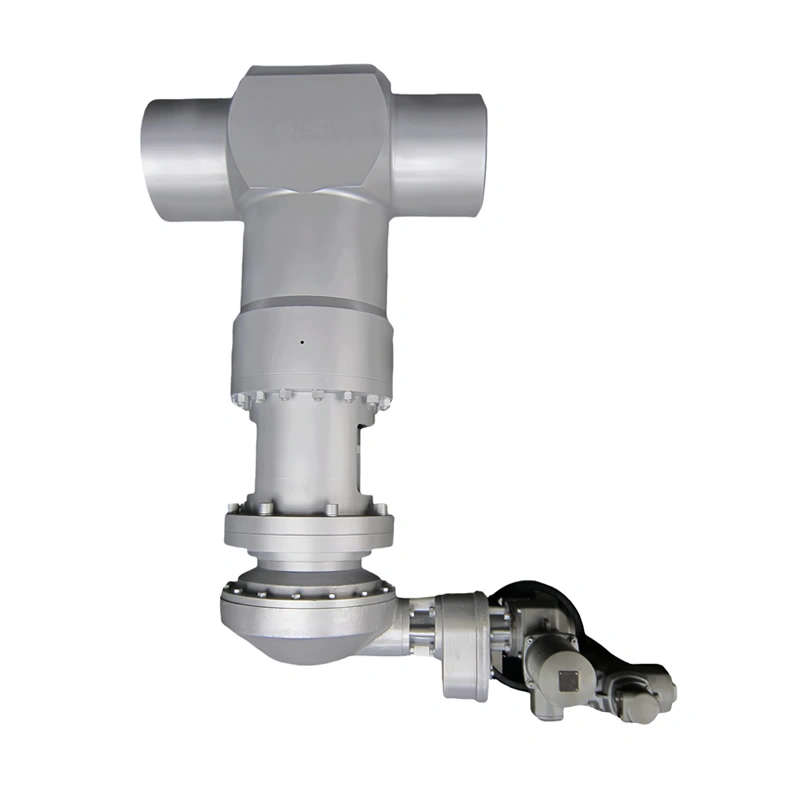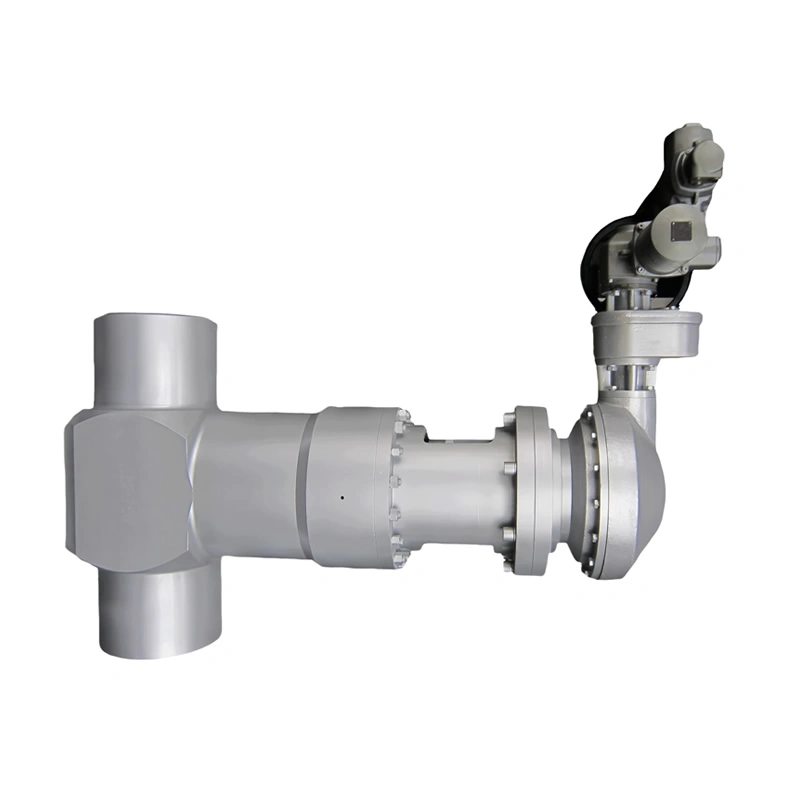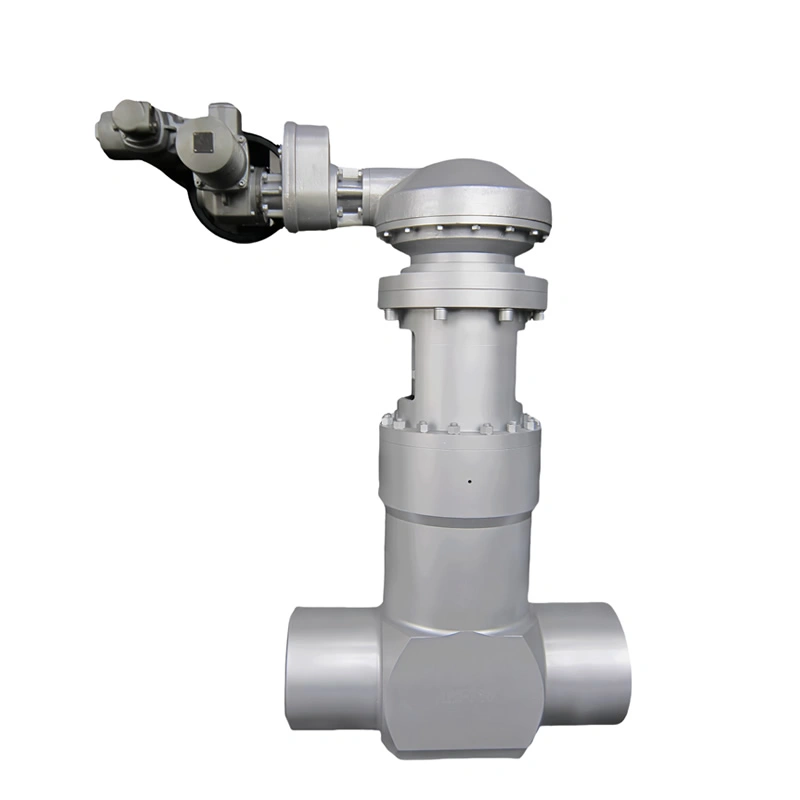- DN50~DN900
- Hydraulic/Pneumatic/Manual/Solenoid/Electric/Other
- Normal/High/Low/Medium Temperature
- GAS/WATER/OIL
Specification
API 600 Pressure High-Power Applications (Class 600-2500, DN50-900) Seal Gate Valve
I. Product Overview: Dynamic Sealing Solution for High-Pressure Applications
NEWWAY’s API 600 pressure seal gate valves are designed to strict API 600 and ASME B16.34 standards, specialized for high-pressure, high-temperature, and corrosive media in power stations, petrochemicals, and metallurgy. Constructed from cast steel (A216 WCB), alloy steel (A217 WC6/WC9), or stainless steel (CF8M), these valves utilize a pressure self-sealing structure that employs medium pressure for dynamic bonnet-body sealing, eliminating reliance on bolt pre-tightening and resolving traditional flange leakage risks. Core functionality lies in precise gate-seat coordination for medium interception, suitable for Class 150~Class 2500 (PN16~PN420) pressure classes and -29℃~540℃ temperature ranges.
II. Key Attribute Parameters: Comprehensive Technical Specifications
|
Parameter Category |
Technical Indicators |
|
Nominal Diameter Range |
NPS 1/2″~NPS 72″ (DN15~DN1800), covering full-size ranges from small instrument lines to large industrial pipelines |
|
Pressure Class |
Class 150, 300, 600, 900, 1500, 2500 (PN16, PN25, PN40, PN63, PN100, PN420) |
|
Execution Standards |
Design: API 600, ASME B16.34; Face-to-Face: ANSI B16.10; Flange: ANSI B16.5 |
|
Material System |
– Body/bonnet: WCB, WC6, WC9, LCB (low-temperature steel), CF8, CF8M; |
|
Operation Modes |
Manual (with handwheel/handle), electric (with actuator), pneumatic, gear-driven (bevel/spur gear) |
|
Connection Types |
Flanged (RF raised face/RTJ ring joint), Butt Weld (BW), Socket Weld (SW), compliant with ANSI B16.25 |
|
Applicable Media |
Water, steam, oil products, natural gas, acid-base solutions, particle-laden industrial fluids |
|
Temperature Range |
-29℃ (LCB)~540℃ (WC9), stainless steel suitable for ≤200℃ corrosive media |
Product Overview
III. Core Features: Self-Sealing Technology & Condition Adaptability
Advantages of Pressure Self-Sealing Structure
The bonnet-body wedge-type sealing design increases sealing force with medium pressure, enhancing reliability at higher pressures. Compared to traditional flanges, this structure reduces bolt quantity by 80%, eliminating leakage risks from bolt fatigue or temperature differences—ideal for frequent start-stop or fluctuating pressure conditions. Test data shows ≤0.01% leakage rate under Class 2500, meeting bubble-tight standards (API 598).
Wide-Range Operational Adaptability
Pressure Coverage: From Class 150 low-pressure pipes to Class 2500 ultra-high-pressure systems (e.g., power station main steam pipes, wellheads), compatible pressure classes via material/seal optimization;
Temperature Adaptation: Low-temperature steel for LNG (-196℃), high-temperature alloy steel for supercritical boilers (540℃), extended stems prevent frosting in cryogenic scenarios;
Medium Compatibility: Stellite-hardfaced seals enhance erosion resistance 3x, suitable for particle-laden steam, high-viscosity,and acidic media.
Multi-Mode Operation & Installation Flexibility
Operation mechanisms support manual emergency use and automation integration: manual types feature handwheels (DN600 operation torque ≤300N・m); electric types offer explosion-proof actuators (Ex d IIB T4) with 4~20mA feedback for DCS systems. Connections comply with global standards, with flanges interchangeable across ANSI, JIS, DIN, and welded ends precision-machined per ANSI B16.25 for on-site efficiency.
IV. Manufacturing Processes: Precision Control from Material to Finished Product
Raw Material Selection & Pretreatment
Castings use resin sand precision casting, stress-relieved by high-temperature annealing; critical areas (e.g., seat seals) undergo ultrasonic testing (UT) to ensure no shrinkage/slag inclusions;
Forgings (A105, F91) employ electroslag remelting with forging ratio ≥5:1, fine-grained structure, 25% higher tensile strength than cast steel, verified by spectral analysis;
Stainless steel (CF8M) undergoes solution treatment, passes intergranular corrosion testing (ASTM A262 E method) for seawater/hydrochloric acid environments.
Precision Machining & Surface Treatment
Valve body sealing surfaces are 5-axis CNC ground to ≤0.01mm flatness and Ra≤0.8μm roughness for precise gate-seat fit;
Sealing surfaces use automatic plasma Stellite surfacing (≥3mm thickness), quenched to ±2HRC hardness uniformity, checked for cracks via fluorescent penetrant testing (PT);
Valve stems are high-precision ground to ≤0.05mm/m straightness, paired with graphite packing or bellows seals to reduce operation friction and extend seal life.
Full-Process Quality Control System
Pressure Testing: Each valve undergoes 1.5x design pressure shell strength (30-min hold) and 1.1x pressure sealing (15-min hold) tests, with helium mass spectrometer leak detection for micro-leaks;
Nondestructive Testing: 100% radiography (RT, Grade II) for welds, 100% magnetic particle (MT) for castings, 100% ultrasonic (UT) for forgings to ensure defect-free delivery;
Life Verification: Sampling for 5,000 on-off cycles records ≤0.05mm seal wear and ≤10% torque change, with service life 20% longer than industry standards.




